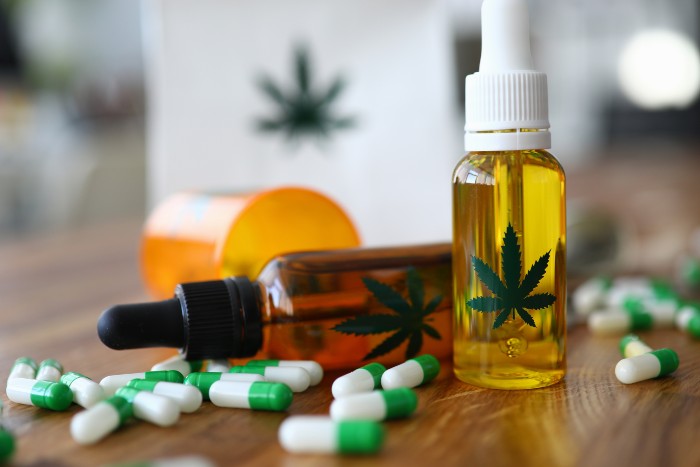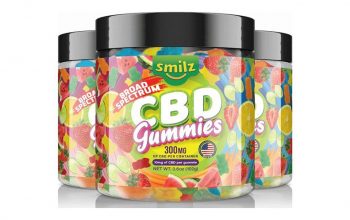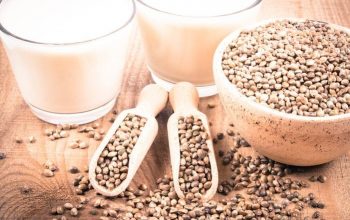If you have visited stores that sell beauty and health products, you must have noticed how such stores these days have a section dedicated to CBD products exclusively. The Cannabidiol aka CBD products seems to be everywhere with tinctures, oils, gummy bears, chocolates, pills, and creams, etc. All of these are available everywhere on the internet, they can even be found on drugstore chains, and perhaps can be available even at your local farmer’s market.
For those who don’t know, cannabidiol has become very popular and is recognized worldwide for its potential to help ease some health problems such as anxiety, insomnia, chronic pain, and many other health conditions. And even when studies are still ongoing about its health benefits, many people are more than willing to try the CBD products. Several types of research talk about CBD being safe generally and there is very minute to absolutely no side-effects caused by it. However, a big caveat exists here—that CBD has the full potential to interact with other medications. This concern has got to do with how the human body performs the metabolism function with certain substances that it consumes. Therefore, we always recommend that you consult your doctor before you start to consume and CBD products or medications. We insist and to understand the depth as to why we insist, here’s a little read for you, read on.

How CBD Has The Potential To Interact With Medications And Drugs
CBD can either increase or reduce the positive effects of some medications; it does so by interacting with the receptors through the body’s ECS (Endocannabinoid System) and also by inhibiting the cytochrome P450’s activity.
Now you might wonder what cytochrome P450 is—it is a collection of liver enzymes that help break down the toxins and drugs that enter our body. When CBD tends to inhibit this enzyme’s activity, it can alter how other compounds metabolize.
The CBD-Drug Interaction That Leads To Risk Of Bleeding
Several studies talk about how CBD and other products of the CBD plant highly influence the effects of drugs that are used for thinning of the blood. For example, the drug named warfarin is used to blood thinning and then there is a drug called ibuprofen that poses a risk of blood thinning. CBD has the potential of interacting with how both of these drugs work. By slowing down the body’s metabolic capability of metabolizing these drugs, CBD helps in the effects of the drug to stay longer in the body, the medication exists in your body for a longer duration. This can do two things, it can either help your body recover sooner or it can increase the risk of bleeding because of the prolonged effect that the drug has on your body.
The CBD And Sedative Interaction
The CBD products tend to interact with neurotransmitters present in the central nervous system of the body. When cannabinoids like THC and CBD do this, they have the potential of leaving behind sedative effects on the human. When it comes to THC, the sedative effects are lethargy and drowsiness. When it comes to CBD, the sedative effects are wake-inducing and calming.
Now when these cannabinoids are combined with sedatives, it makes the cannabinoids develop an additive effect—it simply increases the medication’s effects on the body. While this interaction between the CBD and sedatives do not show any signs of a negative impact that occurs directly on the user, there is no proof as to what impact the CBD can have on the sedative’s power individually. Therefore, to be on a safer side, it is best advised not to combine CBD and sedatives.
The CBD And Anti-Seizure Medication Interaction
Yes, CBD has been widely accepted and appreciated for its effective power in treating the epilepsy seizures. But let us warn you that without proper medical supervision, CBD is capable of presenting problems when consumed along with anti-seizure medications. Many results claim that improper dosage of CBD can in fact result in more aggressive epileptic seizures. Therefore, it is very critical to consult a medical supervisor and find out the right amount of CBD that could be administered if you want to help improve the treatment of epilepsy.
The CBD And Chemotherapy Drugs Interaction
The result of this interaction is somewhat similar to the recent one. When you are providing a person with cancer treatment, it is very critical to provide the person with the right amount of chemotherapy drug dosages. If you provide too little then it may lead to ineffectiveness and at the same time, if you induce too much then it can become toxic to the patient.
Most of the chemotherapy drugs that are given to cancer-fighting patients are given with an understanding of how long until the drug gets metabolized in the body. When you include CBD consumption in this picture, the process of metabolizing gets inhibited and it can result in higher drug concentrations to enter the bloodstream of the body, more than what was intended.
While there are studies that speak of how CBD alleviates cancer-related pains and slows the growth of cancer, if it gets combined with chemotherapy, then the amount of cancer medication that is administered to the patient must be done after taking into account the involvement of CBD intake as well.
The Grapefruit Warning
Several studies are ongoing to understand the possible benefits or risks that are involved when you combine other drugs or medications with CBD consumption. There is, however, one rule thumb that we should be following—to avoid taking CBD if your other drugs or medications have a grapefruit warning written on them. Consuming them and CBD will lead to adverse effects on the negative side. Here’s a list of medications that come with such a warning:
- Antimicrobials and antibiotics
- Blood thinners
- Blood pressure medicines
- Immunosuppressants
- Pain medicines
- Prostate medicines
- Cholesterol medicines
- AEDs
- Medications that treat depression, anxiety, or any mood disorders
We need to remember that CBD is just a substance at the end of the day. And like any other substance, even CBD can interact with other substances. Therefore, it is best advised to consult a doctor before you want to mix CBD with your other medications.


